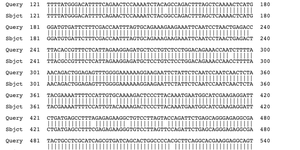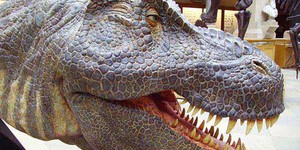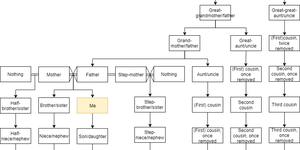Tenth Grade, Explore Evolution Science Projects (8 results)
Explore evolution at the level of the genome, the set of DNA belonging to an organism. Using free online tools and databases, investigate how closely related species are to each other or how they may have evolved over time.
|
Imagine that a biologist arrived at your big family reunion and had no idea who were sisters, cousins, aunts, uncles, etc., but tried to sort it out by how all of you look. Just based on how you look, would s/he be able to guess whether the kid standing next to you is your sister or your cousin? The biologist might be able to make some good guesses this way, but by using samples of your family's DNA, s/he could construct your whole family tree. In this project, you'll use a Web-based…
Read more
Woolly mammoths shook the ground of ice-age tundras for millennia, living next to saber tooth tigers and prehistoric man. Although they have been extinct for thousands of years, scientists continue to learn more and more about this mighty animal. Some of the most exciting new research is being produced by looking at DNA extracted from the hair and bones of woolly mammoths entombed in ice. In this genomics science fair project, you will use bioinformatics tools to determine the woolly mammoth's…
Read more
New
Does your dog get bored when you are not home? Do you ever toss them a few treats right before you head out the door? What if you could keep them busy by automatically dispensing treats throughout the day? What about training them to sit in a certain place or even press a button by automatically rewarding them with treats? In this project you will build your own automatic dog (or cat, or other pet) treat dispenser that you can customize to react to different sensors.
Read more
Believe it or not, scientists were recently able to recover tissue from a 68-million-year-old Tyrannosaurus rex fossil! Not only were they able to purify non-mineralized tissue, but they also succeeded in obtaining partial sequence information for protein molecules in the T. rex tissue. In this genomics science fair project, you will use the T. rex's protein sequence to search sequence databases for the its closest living relatives.
Read more
Imagine that a biologist arrived at your big family reunion and had no idea who were sisters, cousins, aunts, uncles, etc., but tried to sort it out by how all of you look. Just based on how you look, would s/he be able to guess whether the kid standing next to you is your sister or your cousin? The biologist might be able to make some good guesses this way, but by using samples of your family's DNA, s/he could construct your whole family tree. In this project, you'll use Web-based computer…
Read more
You have probably seen figures showing how human beings are related to chimpanzees, gorillas, and other primates. In this genomics science fair project, you will use bioinformatics tools to generate your own primate family tree.
Read more
New
Remembering to take medicine at the right time can be hard, especially if you need to take multiple medications at different times of day. It might not be a big deal if you forget to take your daily multivitamin, but for some people, forgetting to take medication at the right time can be dangerous. What if you had a device that could not only set off an alarm at the right time, but also automatically dispense the right pills for you? In this project, you will build an automatic medicine…
Read more
The first land animals took their tentative steps out of the ocean and onto solid ground around 365 million years ago. Over millions of years, these early ancestors developed into tetrapods, including amphibians, reptiles, dinosaurs, birds, and mammals. Then, around 50 million years ago, the reverse process occurred: the mammalian ancestor of today's whales returned to the ocean. In this genomics science fair project, you will use mitochondrial protein sequencing to trace the evolution of…
Read more
The DNA in our cells contains our "blueprints," but it's the proteins in our cells that do most of the work. The Human Genome Project has allowed us to start reading the blueprints, but we still don't understand what most of the proteins do. This is a fairly advanced project that explores ways of identifying the function of unknown proteins.
Read more
Native plants are important for both ecological and medicinal reasons. However, most native plants are not very well studied. One way to know more about these plants is to understand which other species of plants they are most closely related to. In this science project you will sequence part of the chloroplast genome from a native plant and use this information to determine its evolutionary relationship to other species of plants. If the plant you chose has not been sequenced before, you can…
Read more
|
Explore Our Science Videos
Can You Charge Your Phone with a Potato?
How to Make Slime
What are the Chances? – A Probability STEM activity














